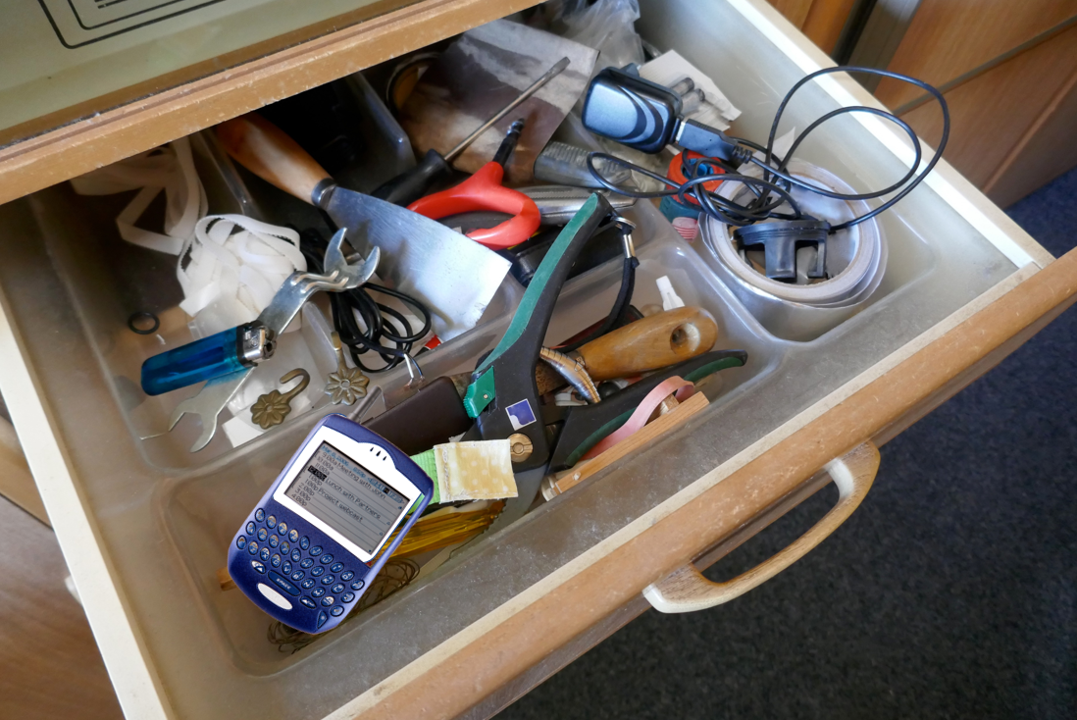
We can’t live without them, that’s for sure. Our mobile phones aren’t just an appendage – they’re our lives. And when something happens to our phones, whether we misplace or lose them, its produces feelings of discomfort, loss, and even panic.
In our early CES adventures, smartphones were some of the biggest stars of the show. And while many of us follow new announcements revolving around the biggest players, like Apple, Samsung, and Google, our phones have become utilities, albeit critically important ones. Electricity, water, mobile phones – not necessarily in that order.
Before you had to turn old phones back in, I started throwing my obsolete ones in my junk drawer. In my collection of cell phones past is a Palm Treo, an old Nokia, and my first iPhone. They feel like antiquities, pieces of my history with these truly amazing devices that have altered our lives.
And so to end this holiday week, three stories about mobile phones that I hope you’ll find relatable and buzzworthy. None are life and death – with an important exception – but all speak to the role our mobile phones play in our lives. Every so often, I read predictions that smartphones will soon be replaced by smart glasses or some other wearable communications device. Or that apps will become obsolete. Somehow, I’m thinking the smartphones and apps won’t go the way of the fax machine, Walkman, or VCR anytime soon.
Item #1: It’s the golden anniversary – It was 50 years ago this week – on April 3, 1973 – that Martin Cooper raised a bulky device the size of a brick to his ear and uttered words. Apparently, they were not “Can you hear me now?” Or “Yes, I’ll hold.”
The historic call took place in Midtown Manhattan outside the New York Hilton on 6th Avenue. These days when walking in NYC, everybody has a cell phone attached to their ear or are texting and walking.
According to An NPR story hosted by Mary Louise Kelly, the Motorola exec called a friend at his competitor, Bell Labs. Until that point, cell phones were in cars. But Cooper had the vision that one day we’d all be carrying mobile phones that would fit in a pocket or a purse.
What’s next for The cellphone? Far from being ready for retirement, Cooper predicts AI technology will be the next stage of mobile phone growth. I wouldn’t argue with him.
Item #2: Hurts so bad – PC Mag reports that of all the gadgetry in our lives, the most dangerous is….you guessed it….our phones. Electronics Hub did the research based on The National electronics Injury Surveillance System (yes, this actually exists) database, the official of gadgetry accidents.
Of the 27 most dangerous electronic devices, The smartphone was numero uno, racking up more than 34,000 “painful incidents” in the U.S. in 2021. As the chart below shows, cell phone snafus peaked in 2019, but are on the way back up:
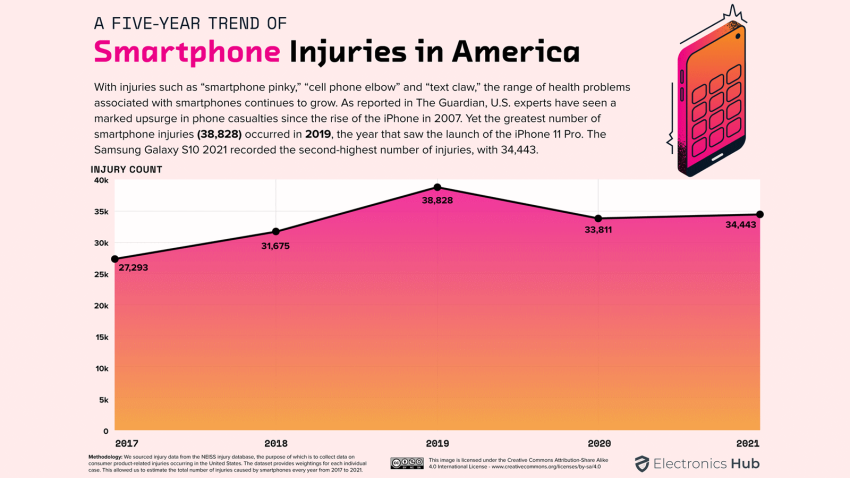
This painful story resonated even more for me. Back in 2021, I was actually hit by a car (OK, sideswiped) while walking in my neighborhood while having an animated conversation with my daughter. The woman behind the wheel claimed she was blinded by the sun (in Detroit??) and was likely on her phone, too.
At the last second, I saw her, jumped out of the way, and was just brushed by the car. It was enough to knock me on my back, glasses flying off one way, my iPhone the other (both undamaged, as was I). After a number of passersby came over to help, I got back on my feet, and realized I was OK. I grabbed my phone to let my daughter know, and then tried to calm down the driver as the police showed up.
It was at that point I saw her car was dented.
Lucky me.
Item #3: They’re BAAA-CK!! – We should have known something was up in early 2022 when we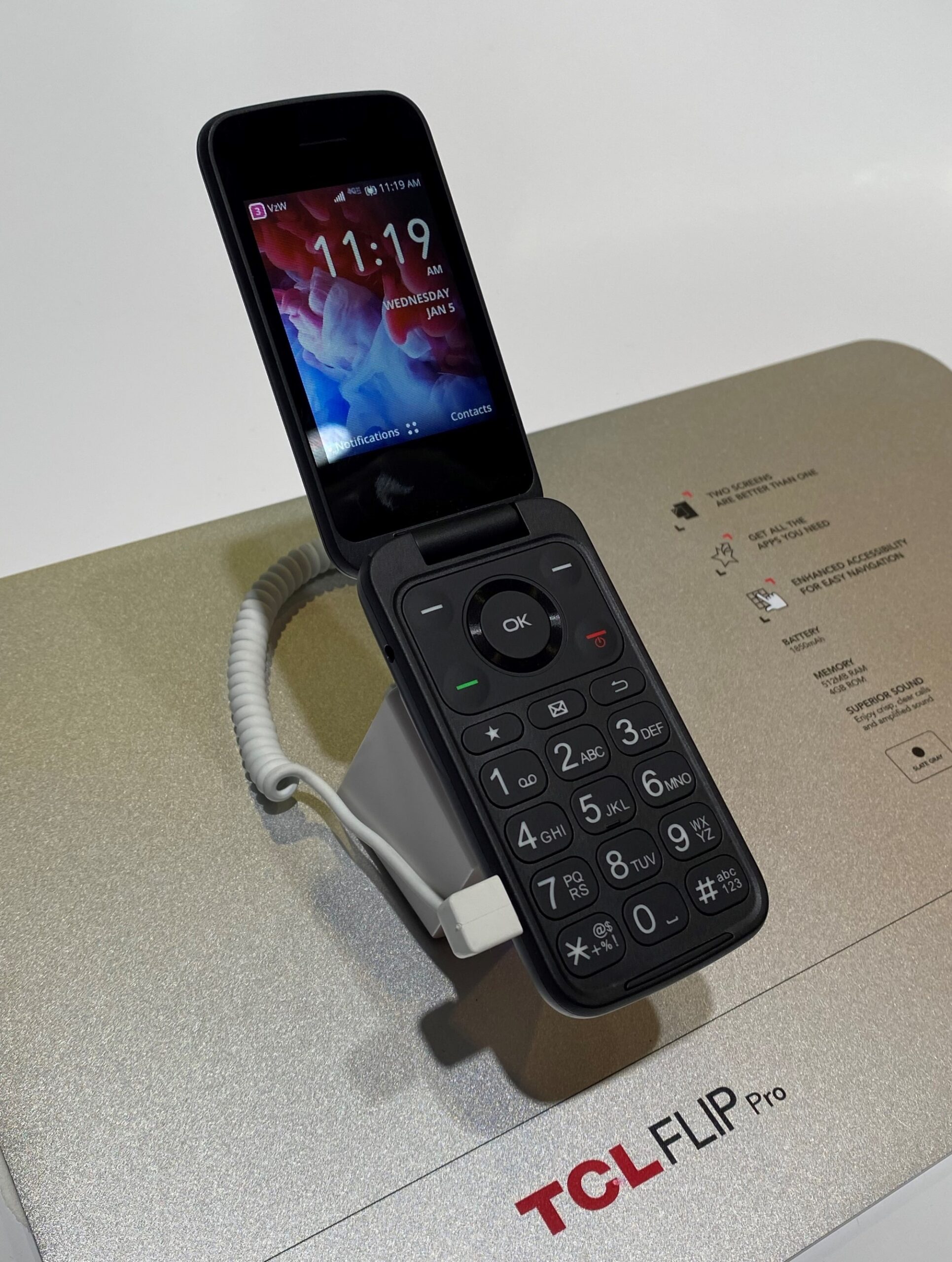 we visited a major Chinese electronics company at CES, TCL Technology. And there it was – a flip phone.
we visited a major Chinese electronics company at CES, TCL Technology. And there it was – a flip phone.
We had a couple of good laughs with the cheery demonstrator (who probably thought we were nuts). All I could think of was the old saw, “Every thing old is new again.” And we moved on to check out more relevant stuff.
One year later, we’re back in Vegas for CES 2023. And now we’re seeing all sorts of flip phones from multiple manufacturers.
Like Samsung.
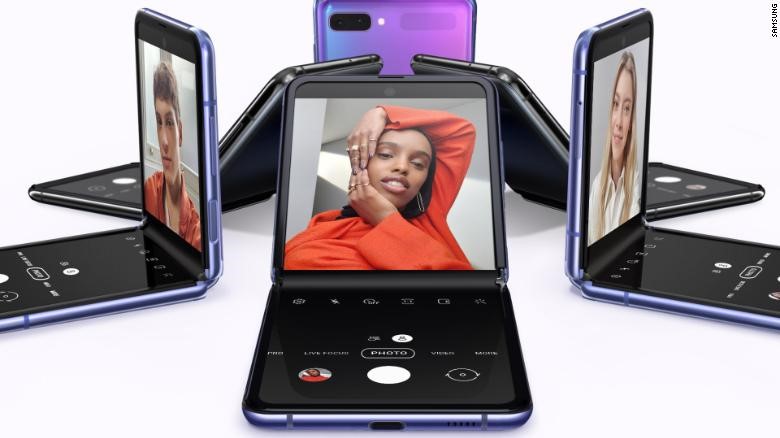
They already have the Galaxy Z Flip4 on the market. Now they’re called “foldable devices.” But the principle is the same. These are phones that fold and flip, just like the old “clam shells” many of us carried around years ago.
Note, however, who they’re marketing these devices to. The target audience is not aging Baby Boomers
And then there was the story that hit in The New York Post in January by Sophie Cannon you see below. Cameron notes old school flip phones have a nostalgic appeal to teens, especially those who aren’t keen on carrying around the same device as mom and dad.
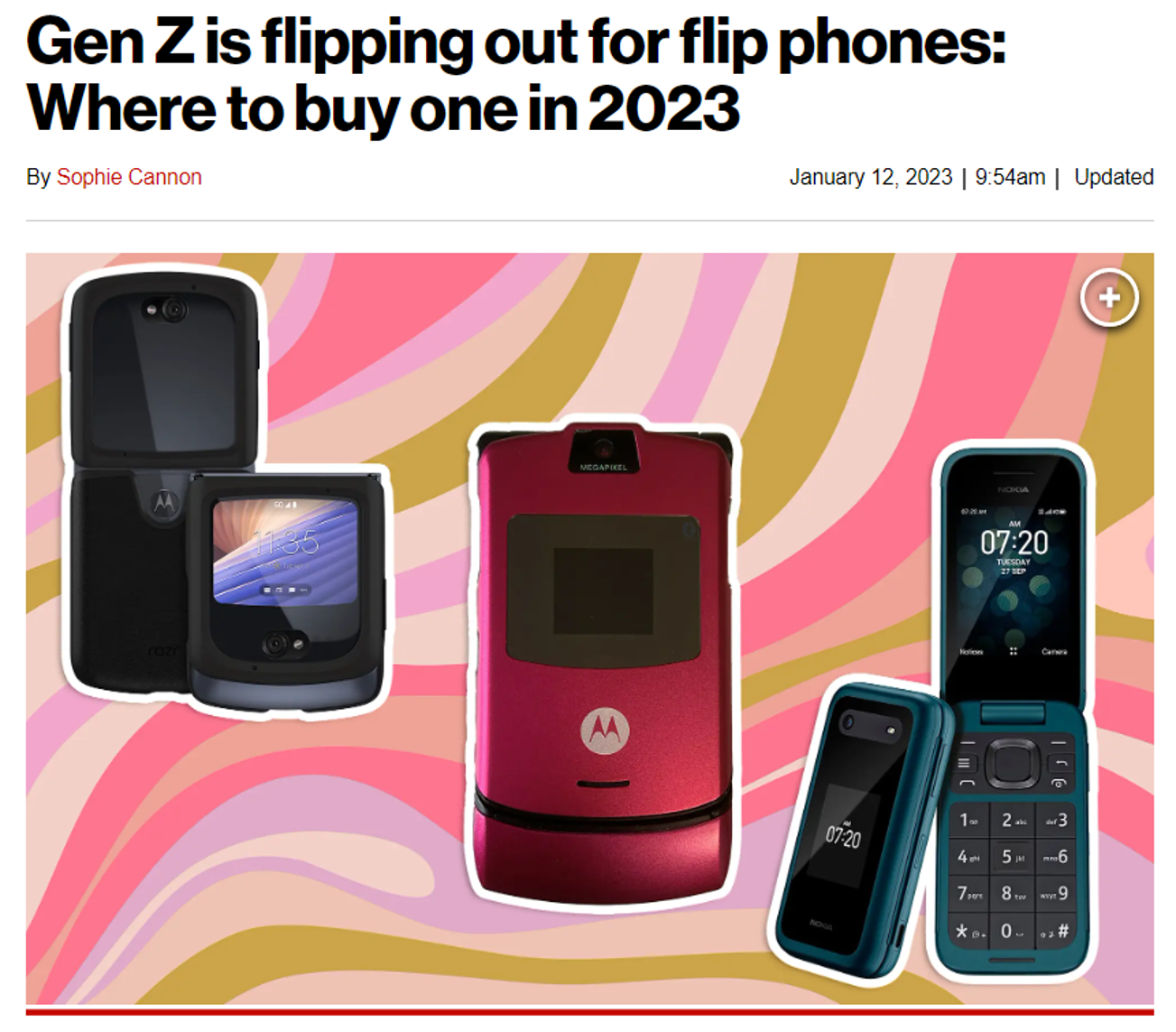
But according to Cameron, the trend runs even deeper. She refers to “the freeing feeling of being more disconnected and in the moment when out at a bar or with friends, especially without the temptation of modern social media apps.”
Side story: I was on the road two weeks ago, woke up in the middle of the night for a bathroom visit, and of course, grabbed my iPhone (hey, I might have gotten an important email between midnight and 2 a.m.). And it was dead.
Not out of power, But DEAD. An operating system issue.
And when I Googled the situation, I came to find out a hard reset would have to be performed at the Apple Store. I was pretty sure everything was all backed up, but you don’t know until you know.
In the meantime, how was I going to wake up two hours later without my phone alarm? It turns out hotels still do wakeup calls. And as I made my way through a day of unknowns – without being able to summon an Uber and having to print out boarding passes at the airport, the day actually took on a sense of unusual calm. I had my laptop for email, but without the barrage of interruptions from texting, push alerts, spam phone calls, and the other myriad distractions, things slowed down.
For a moment, I felt like a Gen Z.
Of course, I was happy – and relieved – to restore everything from the cloud the next day with the help of an Apple Genius. Whew!
- What To Do If Your Radio Station Goes Through A Midlife Crisis - April 25, 2025
- A 2020 Lesson?It Could All Be Gone In A Flash - April 24, 2025
- How AI Can Give Radio Personalities More…PERSONALITY - April 23, 2025




You can thank Star Trek: The Original Series for your flip phones. They were inspired by – and look and work like – the original Communicators.
In fact, it’s a wonder to me how they didn’t end up being called that.
It’s a great name!
Back in the day I was one of the first adopters of the “car phone”. My overnight guy always seemed delighted when I’d call after a night on the town and we’d do a middle of the night talk show for a few minutes. I also had a talking car (Datsun 280Z) which would offer a warning “left door is open” with more emotion than you’ll ever get out of a text to speech app. Moving to a new market, I cancelled my account. Before reactivating it again in the new city I learned I could “whistle” numbers through my phone, a trick I learned in The Army. That was long before digital but I never got a bill. I also worked for a company who was an early investor in the technology. My stock option price never budged for the time I worked for them, but years later it was immense. (I’m not the only “lucky” one.)1 The phone probably the best creation of the 20th Century. I’ve also had two family members rearrange the front end of two vehicles thanks to the ever present cell phone. But it’s here to stay . . and the “calm” one could experience without it -well it will soon go the way of AM radio.
I think the real audience for flip phones is Hollywood producers. How do you take out your frustrations in a phone call with an iPhone?? You can at least slam the flip phone shut!
I hadn’t thought of that – a killer app!